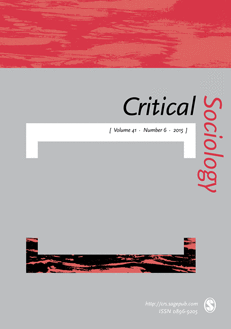The Chinese Race to the Bottom: The Precarious Lives of Unemployed University Graduates in Beijing's "Ant Tribe"
 This article is based on ethnographic fieldwork carried out among what Lian Si (2009) has called China’s ‘ant tribe’, referring to the millions of unemployed Chinese college graduates who live in the outskirts of Beijing and to some extent share the predicament of China’s migrant workers. Education has been the main route to social mobility for centuries in China, but today college graduates are outnumbering jobs in China’s large cities.
This article is based on ethnographic fieldwork carried out among what Lian Si (2009) has called China’s ‘ant tribe’, referring to the millions of unemployed Chinese college graduates who live in the outskirts of Beijing and to some extent share the predicament of China’s migrant workers. Education has been the main route to social mobility for centuries in China, but today college graduates are outnumbering jobs in China’s large cities.
I focus on the relationship between the fantasy of education as a route to social mobility and the actuality. By narrating the biographies of two university graduates, Jing Jing and Bai Gang, who attempted but partly failed to transcend the boundary between rural and urban China, I show how their quests for social mobility and a more fulfilling life were tied to economic, legal and cultural constraints. I argue that the quest for a better life through educational migration may lead to physical mobility, but that existential mobility is lacking and this sometimes leads to instances of suicide, just as is the case for Chinese migrant workers who feel trapped in appalling working conditions.
The Chinese Race to the Bottom: The Precarious Lives of Unemployed University Graduates in Beijing's "Ant Tribe", Susanne Bregnbæk, Critical Sociology, 2015
